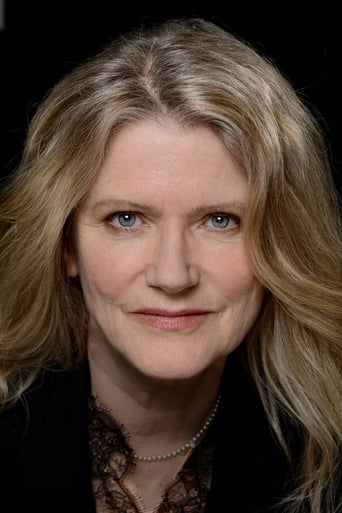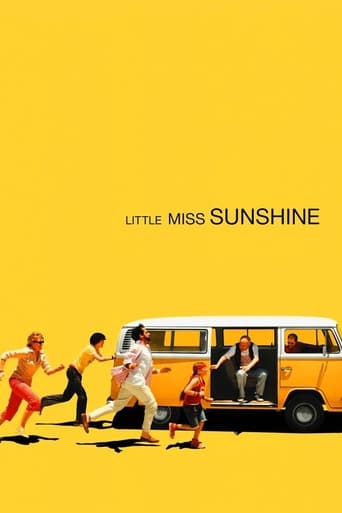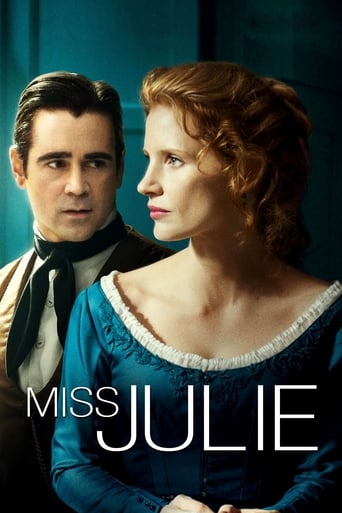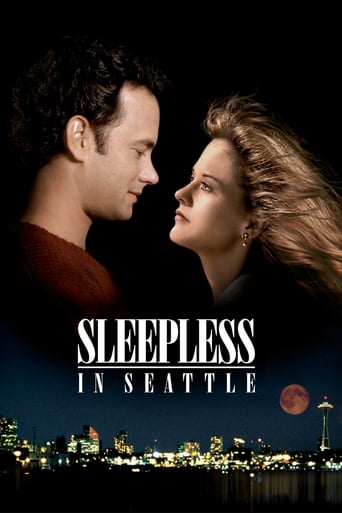Hannah Arendt (2013)
HANNAH ARENDT is a portrait of the genius that shook the world with her discovery of “the banality of evil.” After she attends the Nazi Adolf Eichmann’s trial in Jerusalem, Arendt dares to write about the Holocaust in terms no one has ever heard before. Her work instantly provokes a furious scandal, and Arendt stands strong as she is attacked by friends and foes alike. But as the German-Jewish émigré also struggles to suppress her own painful associations with the past, the film exposes her beguiling blend of arrogance and vulnerability — revealing a soul defined and derailed by exile.
Watch Trailer
Free Trial Channels
Cast


Similar titles
Reviews
one of my absolute favorites!
A Disappointing Continuation
How wonderful it is to see this fine actress carry a film and carry it so beautifully.
It was OK. I don't see why everyone loves it so much. It wasn't very smart or deep or well-directed.
This is a most remarkable film about an article written by a most remarkable philosopher. If von Trotta's film is at all reminiscent of any other film, I'll put my money on Miller's "Capote" (with Philip Seymor Hoffman), about another 60s writer who approached an untouchable subject in a controversial way. But there the analogy stops. Where the earlier film exhibited Capote as preying on his death-row murderers for his own personal gain, von Trotta's and Sukowa's Arendt jeopardizes her academic esteem with her account of the Jerusalem trial of the indefensible Nazi criminal Adolf Eichman. The world in general and Ben Gurion's Israel in particular wish merely to gloat at the downfall of a monster, but Arendt refuses to oblige. In Eichman, she sees a depressingly ordinary man caught up in the atrocities of the Third Reich; a man who was not part of Hitler's anti-Semitic craze but was simply doing his duty by the corrupt laws of a monstrous regime. Stating that "If (Eichman) had not been found guilty before he appeared in Jerusalem, the Israelis would never have dared, or wanted, to kidnap him in formal violation of Argentine law," Arendt exposes the hypocrisy of the Jerusalem show trial and of a world that used Eichman as a scapegoat whose execution would exempt the rest of the world from blame. Arendt ends the article she was commissioned to write for "the New Yorker" with her own rephrasing of the Jerusalem verdict of Eichman: "Just as you supported and carried out a policy of not wanting to share the earth with the Jewish people and the people of a number of other nations we find that no one, that is, no member of the human race, can be expected to want to share the earth with you. This is the reason, and the only reason, you must hang." All hell breaks loose after the publication, but when asked if she would have written the article if she had known what would ensue, Arendt says yes. Her integrity instructed her. However, the film delves deeper than this, and in different directions, too, which leaves the final verdict up to us. On one hand, we clearly see Arendt's point justified when Israeli government officials inform her that her work will be banned in Israel and she retorts, "You forbid books and you speak of decency?" But, on the other hand, the film gingerly touches upon Arendt's past affair with Nazi sympathizer Heidegger and makes us wonder whether this may somehow have influenced her article, and moreover, we are repeatedly told, by several characters in the film, that she is obstinate and willful to a fault. The film depicts a philosopher at a crucial turning-point in her life, and it leaves her when she is deserted by all her former friends in the Jewish community. The film must be seen at least twice, I think, before it can be determined whether our protagonist is eventually triumphant or defeated.
"Hannah Arendt" is a German film from 4 years ago that got writer and director Margarethe von Trotta and lead actress Barbara Sukowa international acclaim (again) and awards attention as well. I personally cannot see why though. This film here that runs for not much under 2 hours is a perfect example of how a historically relevant film should not look like. The main reason is Sukowa. She gives a performance that screams awards attention is packed with over-the-top acting in the worst possible way one can imagine and full of mannerisms that make her turn entirely style over substance. I do not think I have ever seen a worse performance that garnered so much awards attention. I could mention a dozen scenes, but honestly you will know what I am talking about when you watch the film. The script is not as bad as Sukowa's performance, but it is still fairly weak I must say. Also a great example of style over substance and it totally does not do any justice to the interesting story of the Eichmann trial.In theory, Arendt's approach to the matter emphasizing Eichmann's mediocrity instead of depicting him as a true evil is an interesting background and certainly a worthy foundation for a feature film. But beyond that interesting background and a solid beginning that is luckily not about Sukowa's character for once. In terms of the rest of the film, it is almost not bearable because of how hammy the lead actress is from start to finish. So it should not come as a surprise at all that the only good thing are the original recordings from the Eichmann trial. And these can hardly be attributed to von Trotta's work here. Given her recognition in the decades before this film, I certainly have to ask the question if she has lost her skill entirely. I cannot imagine for any reason why anybody would greenlight a film with such an unbearable lead performance. Highly not recommended.
It is a really good film. Though I would highly recommend reading the book in which it is based ("Eichmann in Jerusalem: A Report on the Banality of Evil") to fully appreciate the dialogue, the film conveys what Hannah Arendt really wanted to communicate: that an external situation highly influences (not to the point of determining, because there are always exceptions) the behavior of "normal" people. In this case, totalitarianism and evil behavior. I would only add that some commentary should have been included in the final credits about what happened regarding the polemic she caused with the passage of time. I think a paragraph I read in an Internet essay by Dr. Daniel Maier-Katkin (http://www.hannaharendt.net/index.php/han/article/view/64/84) is very clear about it: "The tide of history since then has been mostly with her. In politics this is due to the widespread opposition especially among students and intellectuals to the Viet Nam war in the late 1960s and early 1970s. The conduct of American leaders – Lyndon Johnson and Robert McNamara, and then Richard Nixon and Henry Kissinger – brought home the idea of "banal" evil. In social science, landmark studies of obedience to authority by Stanley Milgram at Yale and of prisoners and guards by Philip Zimbardo at Stanford gave shocking evidence of the extent to which ordinary people could be induced to harm others. Among historians, with the notable exception of Daniel Goldhagen's book Ordinary Germans: Hitler's Willing Executioners (which attributes the Holocaust to a tradition of exterminationist anti-Semitism in German culture) recent scholarship on the Third Reich – Ian Kershaw on Hitler, Robert Gellately on the S.S., Christopher Browning on the Einsatzgruppen – tends to confirm Arendt's thesis that ordinary people were complicitous with the Nazi regime for reasons best characterized as banal. In international affairs, the collapse of Soviet totalitarianism and recent genocidal catastrophes in Bosnia, Rwanda and Darfur have reinforced the idea that great evil may arise from the false beliefs and banal motives of ordinary people". The above mentioned Dr. Zimbardo published in 2007 a book titled "The Lucifer Effect" in which he explains how good people turn evil. Years before, he had testified for the defense of a guard at Abu Ghraib prison rejecting the idea that the events did not reflect the particular military situation in which they happened. Of course, this is difficult to accept, because it implies much more culpability on the higher authorities which allowed such a "situation" to emerge in the first place. I guess the argument suggests that it is far more difficult to accept that there is a high probability that "normal people" like ourselves can fall into evil behavior due to a horrendous and shocking situation in which, for whatever reason (and without fully realizing it) we might fall; than conceiving an evil nature (an awful exception) in he who behaves in such a way. Anyway, do not misunderstand the idea. The fact that the situation can have a predominant role does not exculpate the perpetrator. (spoiler alert) As Hannah Arendt's last phrase of her book (talking to Eichmann's about his overall behavior) states: "This is the reason, and the only reason, you must hang".
Adolf Eichmann was the Nazi bureaucrat who organised the transport of Jews to concentration camps during Hitler's reign in Germany. If the anti-semites who peddle all that Holocaust denial nonsense had enough intellectual curiosity to read Hannah Arendt's book about his 1960-2 trial in Israel, they would discover a far more potent means of spreading their racial hatred. Arendt describes the way in which Eichmann, a mediocrity rather than a monster, used his negotiating skills to convince the Jewish organisations that they could "save" a certain number of Jews by assisting in the "deportation" of othersI watched the unfolding of Margarethe von Trotta's film with something akin to disbelief. I went away and read the book version of Arendt's series of articles for the New Yorker magazine on the trial of Eichmann in Israel in 1960-62. (Penguin Edition 2005) page 58 The Councils of Jewish Elders were informed by Eichmann of how many Jews were needed to fill each train and they made out the list of deportees The few who tried to hide or to escape were rounded up by a special Jewish police forcepage 60 Without Jewish help in administrative and police work there would have been either complete chaos or an impossibly severe drain on German manpowerpage 61 to a Jew this role of the Jewish leaders in destruction of their own people is undoubtedly the darkest chapter of the whole story page 62 we can still sense how they enjoyed their new power – the Central Jewish Council has been granted the right of absolute disposal over all Jewish spiritual and material wealth and over all Jewish manpower Jewish officials felt like Captains "whose ships were about to sink and who succeeded in bringing them safe to port by casting overboard a great part of the precious cargo" In order not to leave the selection to blind fate, truly holy principles were needed as the guiding force of the weak human hand which puts down on paper the name of the unknown person and with this decides his life or death. And who did these holy principles single out for salvation? Those who have worked all their lives for the community i.e. The functionaries and the most prominent Jews (through page 65, 70-71 and 80-83) The film then depicts the way in which the Jews with whom Arendt had associated in America before writing those articles virtually excommunicated her. Nothing new about that. Read chapters 20 and 29 of the Jewish prophet Jeremiah (628-587 B.C.E.), who faced 'criticism' for daring to tell his countrymen they were to be exiled in Babylon for seventy years. In fact it was Jeremiah who came up with the notion of 'assimilation'. That's in chapter 29 of his prophecies too Build houses and settle down; plant gardens and eat what they produce. Marry and have sons and daughters; find wives for your sons and give your daughters in marriage, so that they too may have sons and daughters. Increase in number there; do not decrease. Also, seek the peace and prosperity of the city to which I have carried you into exile. Pray to the Lord for it, because if it prospers, you too will prosper.The whole assimilationist trend has been attributed to the eighteenth century philosopher and wandering Jew, Moses Mendelssohn by, among others, Simon Schama in his 2013 BBC television series "The Story of the Jews". As that series pointed out, Theodor Herzl contested the assimilationist idea in his 1895 book, "Der Judenstaat" ("The Jewish State") which launched the Zionist movement, whose activities culminated in the creation of the state of Israel in 1948. Arendt makes the astounding disclosure that it was one of the few books Eichmann ever read. He not only read it. It became the foundation of his 'idealistic' view that Jewish feet should stand on Jewish, not German, soil. Everything that he accomplished was directed toward that purpose.But maybe there is an even more shocking idea inherent in the film's narrative than that.I had heard the striking phrase, 'the banality of evil' before I had heard of Arendt. She uses it in her paragraph describing the hanging death of Eichmann at the hands of Israeli officials. But like the serpent in the Garden of Eden, evil has a way of disguising its banality. If we can define Nazism as evil, was it something in the Nazi tendencies of her teacher and lover, Martine Heidegger, that attracted her to him? (If the depiction of Heidegger in the film by Klaus Pohl is accurate, it was certainly not his looks). There is the scene in which she and her female confidante, Mary McCarthy, talk about 'the love of her life" over a game of billiards. She denies it was Martin HeideggerBut then I was surprised when I heard the critics raving about the performance of Barbara Sukowa in the lead role. To me, watching the film, I found her performance in her scenes of domestic interaction with her husband rather forced. It brought to mind those rather overstated intimations of affection of people who seem to be trying to convince themselves that feel more strongly for their partner than their hearts' tell them that they do. Her performance seemed to be 'artificial'.Maybe Mary McCarthy was right. Maybe it all gets back to that idea of Chris Hedges, quoted as a preface to Kathryn Bigelow's 2008 film, "The Hurt Locker" to the effect that "War Is A Force That Gives Us Meaning". Maybe the serpent, the Shining One, in the Garden of Eden had an attractiveness that transcended mere banality. Maybe it was something about the evil in Heidegger that made him the love of Arendt's life


















